From August 21st to 28th, Vice President Tang Lei led a delegation to Bosnia and Herzegovina and Serbia, visiting important partners such as the University of Banja Luka and the University of Kragujevac, and paying visits to the Chinese Embassy in Bosnia and Herzegovina and the Science Foundation of Serbia. In-depth exchanges were conducted on advancing international faculty and student exchanges, talent cultivation, scientific research cooperation, and the construction of the overseas branch of the Belt and Road International Collaborative Innovation Center.
On August 22nd, the delegation visited the Acting Ambassador of the Chinese Embassy in Bosnia and Herzegovina, Miao Dake. Tang Lei reported in detail to Miao Dake about the purpose of this visit and the cooperative work carried out with the University of Banja Luka. Miao Dake welcomed the delegation and fully recognized Shanghai Health Medical College's active response to the national Belt and Road initiative and its academic and scientific research cooperation with Bosnia and Herzegovina's universities. He also congratulated Shanghai Health Medical College on the establishment of the first Balkan Belt and Road Collaborative Innovation Center in Shanghai in partnership with Bosnia and Herzegovina's universities, expecting the college to play a greater role in promoting educational and scientific research cooperation between China and Bosnia.
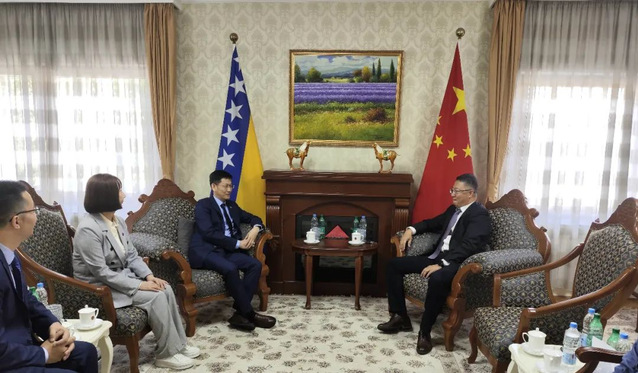
Visit to the Acting Ambassador of the Chinese Embassy in Bosnia and Herzegovina, Miao Dake
On August 23rd, the delegation visited the University of Banja Luka. In the presence of leaders and guests including Željko Budimir, Minister of Science and Education of the Republika Srpska, Milan Latinović, Deputy Minister of Health, Radoslav Gajanin, President of the University of Banja Luka, Dalibor Kesić, Vice President, and Ranko Škrbić, Dean of the Medical Faculty, as well as many media representatives, the unveiling ceremony of the joint overseas branch of the Yangtze River Delta - Balkan Peninsula Biomedical International Technology Transfer Collaborative Innovation Center was held at the University of Banja Luka. President Radoslav Gajanin expressed that he had engaged in multiple in-depth exchanges with President Wu Tao of our college last year, especially during their visit to Shanghai Health Medical College, where they saw the latest technological solutions for improving medical quality and services through interdisciplinary innovation, which not only deepened their understanding of our college but also laid a solid foundation for our consensus and cooperation in various areas. Vice President Tang Lei stated that the establishment of the branch center would actively promote cooperation between the two schools in scientific and educational innovation, joint project applications, faculty and student exchange programs and training, international joint student cultivation, advanced technology transfer and transformation, and demonstration projects of innovative achievements, contributing to higher-level and deeper cooperation between China and Bosnia and Herzegovina under the Belt and Road initiative.
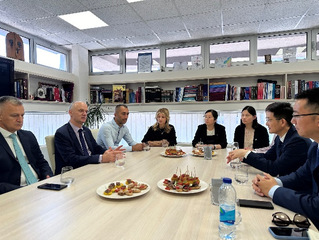
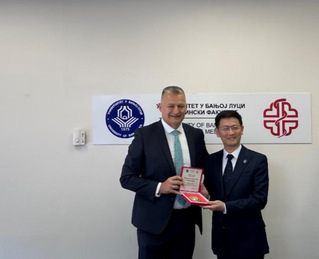
Unveiling Ceremony of the Overseas Branch Center
Subsequently, the delegation held a meeting with President Radoslav Gajanin, Vice President Dalibor Kesić, and Dean Ranko Škrbić. Both sides fully exchanged views on the construction and implementation plan of the overseas branch of the Collaborative Innovation Center at the University of Banja Luka and reached a consensus on using outstanding faculty exchanges, joint master's and doctoral training, major research project applications, and faculty-student exchanges in clinical medical talent cultivation as starting points to fully promote the accelerated implementation of the branch center's construction.
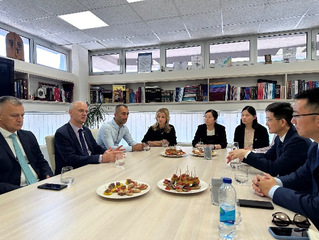
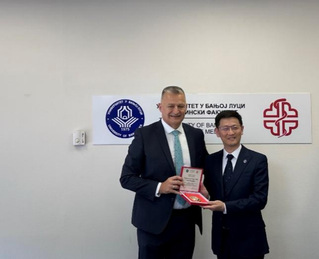
Meeting at the University of Banja Luka
On August 24th, the delegation visited the largest medical institution in the Republika Srpska – the Clinical Center of the University of Banja Luka, and Dr. Miroslav Zotović, one of the largest public health institutions in the Balkan region specializing in physical medicine, rehabilitation, and orthopedic surgery. The delegation exchanged views on the health and medical care system of the Republika Srpska, the scale and layout of medical institutions, the operation model of the medical service system, the configuration and management of medical facilities, and the construction and talent cultivation of the medical team. During the visit, a press conference was held at the Clinical Center of the University of Banja Luka by the Republika Srpska news media, where in-depth interviews and reports were conducted on the potential cooperation between Shanghai Health Medical College and the University of Banja Luka, along with its affiliated medical institutions.
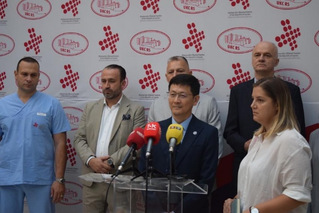
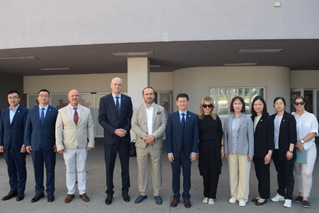
Visiting the Clinical Center of the University of Banja Luka and Attending the Press Conference
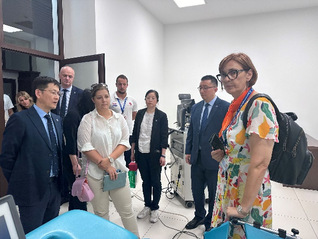
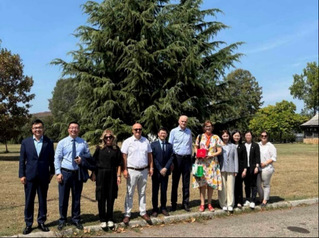
Visiting Dr. Miroslav Zotović
On August 26, the delegation visited the University of Kragujevac in Serbia and signed a strategic cooperation agreement between the two universities with Professor Vladimir Rankovic, the Executive Chancellor of the University of Kragujevac; at the same time, both sides also discussed in detail the shared vision for future in-depth cooperation in the construction of overseas branches of the Collaborative Innovation Center, joint talent training, faculty and student exchange programs, and scientific research project collaboration. Subsequently, the delegation visited the Biomedical Engineering Laboratory of the university, where they engaged in deep communication and exchange regarding research cooperation in key disciplines.
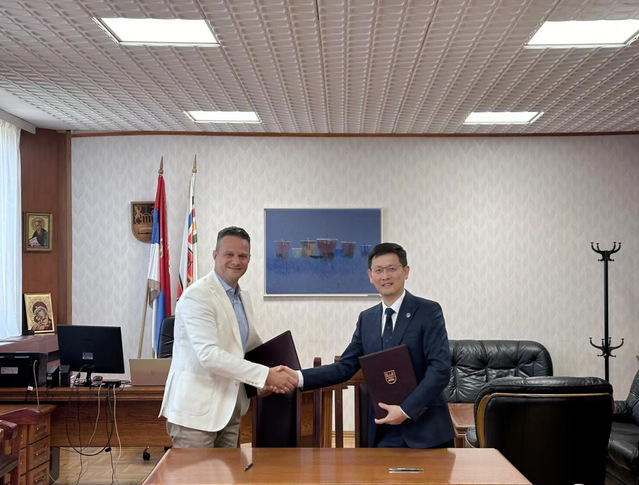
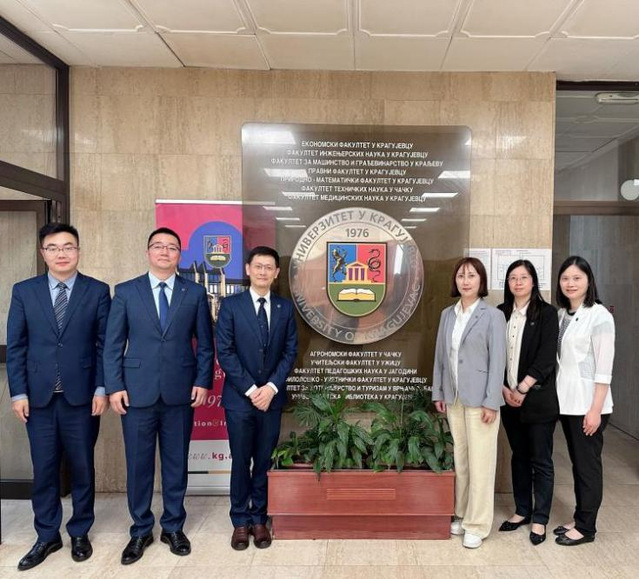
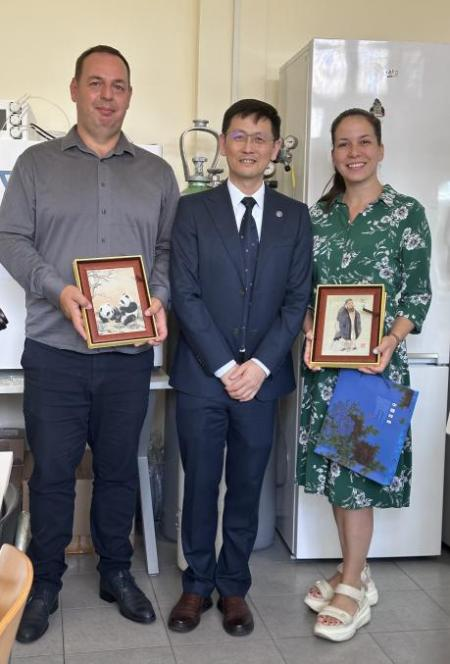
Visit to the University of Kragujevac in Serbia
On August 27, under the arrangement of the University of Kragujevac, the delegation traveled to the capital city of Serbia, Belgrade, to visit Professor Nenad Filipović, the Director of the Serbian Republic Science Foundation. The Serbian Republic Science Foundation is an important institution responsible for funding and managing scientific research in Serbia, aiming to provide financial support and conditions for the sustainable development of scientific research activities in Serbia, thereby achieving the strategic goals of Serbia's scientific and technological development.
Professor Nenad Filipović warmly welcomed the delegation and introduced the main functions and content of the Serbian Republic Science Foundation's work, as well as plans for high-level international scientific research exchange and cooperation globally. Then, Associate Professor Zhou Liang, the Executive Director of the Shanghai Collaborative Innovation Center for Intelligent Medical Instruments and Active Health, introduced the center's scientific research progress and innovative achievements in recent years in the fields of medical health big data, biomedical new materials, and human-robot integration robotics, with the support and guidance of the school.
During the meeting, Tang Lei discussed in depth with Professor Nenad Filipović about Shanghai University of Medicine and Health Sciences' future high-level interdisciplinary medical-engineering research cooperation with Serbian universities and active participation in high-level scientific research project plans jointly developed by Serbia and China.

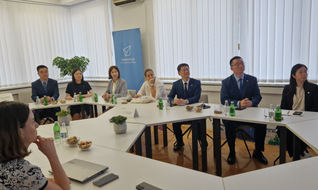
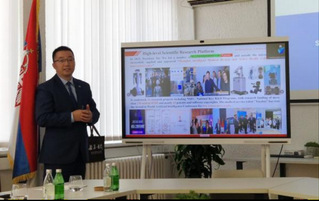

Visit to the Serbian Republic Science Foundation
This visit is an important practice for the school to actively integrate into the national Belt and Road initiative, promoting the transformation of the Belt and Road educational community and the community of human health into practical actions from conceptual visions; it is a beneficial exploration for actively promoting our school's high-level international talent cultivation, realizing normalized high-quality international scientific and technological cooperation, and building a specialized and high-level international exchange network, continuously enhancing the school's leading and supporting role in the transformation of scientific and technological achievements and the construction of a talent team in the fields of medicine-engineering intersection and combination of medical and healthcare along the Belt and Road countries, especially in the Balkan region; it is the school's concrete action to continuously serve the national strategy, serve the local economy, and contribute more to the improvement of the people's health and well-being.